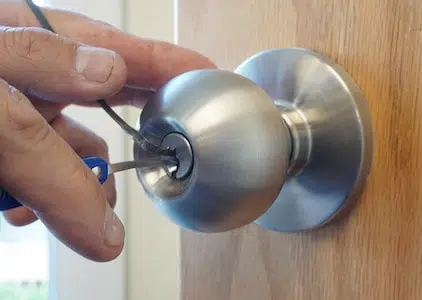Locksmiths have been essential throughout human history. Ancient Egypt and Mesopotamia invented locks and keys 4000 years ago to protect valuables and privacy. Technology, society, and the need for security have transformed locksmithing over the centuries. Locksmith services have evolved from simple locks and keys to biometrics and smart access control. This article examines locksmith services’ transition from traditional to high-tech solutions in ten key areas.
The Ancient Roots of Locksmith Services
Ancient civilizations invented locksmithing. 2000 BC Egypt used wooden pin lock mechanisms. These wooden locks used wooden keys. In ancient Mesopotamia, temples and palaces had lock and key systems to protect treasures and documents. These simple locks protected valuables.
The Medieval Era and Advancements in Locksmithing
Medieval locksmith services advanced. Locksmiths could make more intricate and secure locks and keys thanks to metalworking techniques. The 17th-century English locksmith Robert Barron invented the first combination lock, a major industry milestone. The correct code unlocked this combination lock’s rotating disks with notches.
Industrial Revolution and Mass Production
The Industrial Revolution revolutionized locksmith services. Machines and mass production made lock manufacturing more efficient and affordable. Locks became widely available and used in residential, commercial, and industrial settings.
Advancements in Lock Materials and Security
Locksmiths used stronger, more durable materials as metallurgy and materials science advanced. Locks became stronger and tamper-resistant when iron, steel, and brass were used. Lever locks, warded locks, and tubular locks were developed to improve security.
The Emergence of Master Key Systems
Master key systems revolutionized locksmithing in the 19th century. Homeowners, businesses, and institutions could use a single key to open multiple hierarchical locks. Hotels, offices, and apartments used master key systems.
Locksmiths in the Modern Era
Locksmith services diversified and specialized in the 20th century. Locksmiths now handle safes, vaults, and automotive locks. Automotive locksmiths were needed to handle car lockouts, key replacements, and ignition repairs as the auto industry grew.
Electronic Locks and Keyless Entry Systems
Electronic locks and keyless entry systems changed the late 20th century. These solutions used access cards, key fobs, or numerical codes instead of keys. Electronic locks improved security, audit trails, and temporary access.
Integration of Biometrics
Biometric technology advanced locksmithing in the 21st century. Fingerprint, retinal, or facial recognition unlock biometric locks. Since biometric data is unique, these solutions provide more security.
Smart Locks and Home Automation
Smart locks that could be controlled by smartphones or integrated into home automation systems emerged with smart home technology. Smart locks let users monitor access, receive alerts, and grant temporary access to visitors, service providers, and family.
Blockchain and the Future of Locksmith Services
Blockchain technology could further transform locksmith services. Decentralized, tamper-resistant blockchain-based locks can secure assets without physical locks and keys.
Conclusion:
Locksmith services have evolved from wooden pin locks to high-tech solutions, demonstrating human ingenuity and security. Locksmiths will adapt, innovate, and provide cutting-edge security solutions as technology advances. Locksmiths have protected our valuables and peace of mind from ancient Egypt to blockchain.
Author


